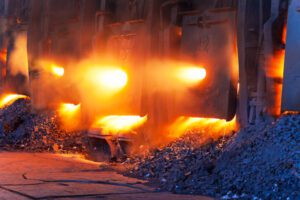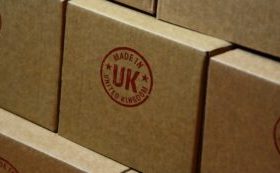
The UK government has confirmed it will introduce a new set of strengthened steel safeguard measures from 1 July 2025, acting on urgent recommendations made by UK Steel amid growing concerns about a spike in redirected foreign imports.
Business and Trade Secretary Jonathan Reynolds announced the changes today, which follow calls from UK Steel to take immediate action to protect domestic producers. The adjustments include a significant tightening of the steel import quota liberalisation rate from 3% to just 0.1% year-on-year—a move designed to counter the surge in imports that have been diverted away from the US market following President Trump’s imposition of new tariffs on steel products.
The government has also agreed to implement a cap on residual quotas, ensuring that individual countries cannot dominate market access and displace UK-manufactured steel. Country-specific import limits are to be made more stringent, while rules will be updated to prevent unused quarterly quotas from being carried over, and stop countries with dedicated quotas from dipping into residual allocations in the final quarter.
These changes mirror similar safeguards adopted by the European Union and are intended to shield UK producers from unfair competition and unsustainable price pressures caused by heavily subsidised foreign steel.
Welcoming the announcement, UK Steel Director-General Gareth Stace said the decision was “a swift and decisive move in support of British industry” and highlighted its urgency in light of steel redirected away from the US market flooding global supply chains.
“Jonathan Reynolds has shown that he is on the side of British industry by implementing these urgent safeguards,” Stace said. “This will help diminish the injury caused to UK steelmakers by a spike in redirected imports following the US steel tariffs. It sends a strong message to investors that the UK is committed to building a positive and stable business environment for industry.”
Stace added that while the tightened safeguards were a vital step forward, the government must now focus on developing a long-term trade defence mechanism to take effect when the current system expires at the end of next year.
The steel safeguards form part of a broader strategy to ensure the competitiveness of British manufacturing in a rapidly changing global trade environment. With steel supply chains facing ongoing turbulence and oversupply from state-subsidised producers, the UK sector has repeatedly called for robust trade defence tools to secure its future.
The announcement is likely to be welcomed by steel producers and workers across the UK, particularly in areas such as South Wales, Yorkshire, and the Midlands where the industry remains a critical economic pillar.
The government said it remains committed to supporting strategic sectors and ensuring the UK remains resilient in the face of global market disruption.
Further policy details are expected to be outlined in the upcoming Trade Strategy, due later this summer, which will lay the foundation for post-Brexit trade remedies and international competitiveness.
Read more:
UK government confirms tighter steel import safeguards from 1 July to protect domestic industry








